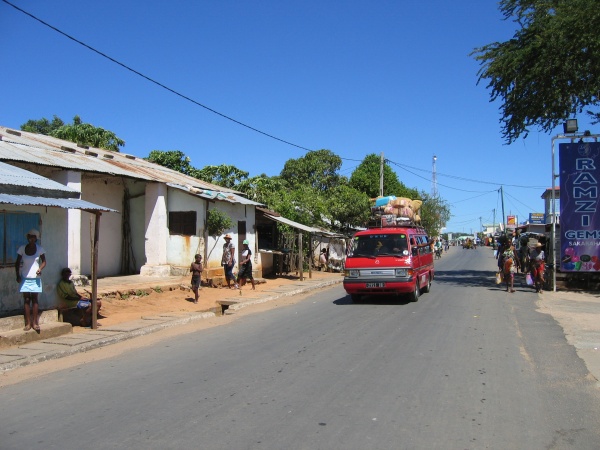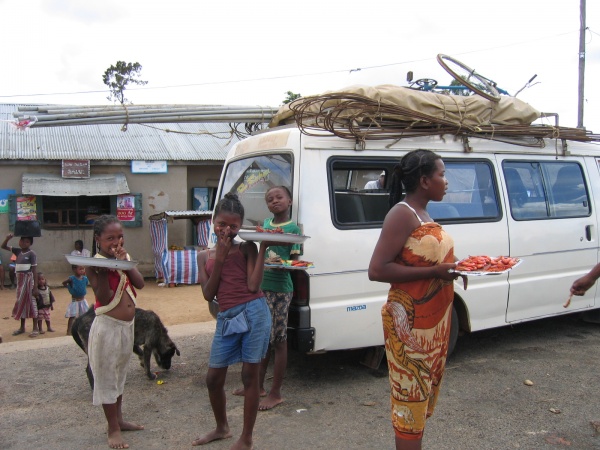Difference between revisions of "Taxi-brousse"
| Line 1: | Line 1: | ||
Organised vans for transporting people and goods against a fee through the country of Madagascar are called taxi-brousse. Usually a taxi-brousse station can be found next to the market of the town. Destinations and prices are written on the windscreen of each car. A fixed time table does not always exist, most taxi-brousse leave when the car is filled with passengers. Paying for empty seats can accelerate the departure to a considerable degree. At long-distance travels the driver will stop for a break at restaurants or street stands. | Organised vans for transporting people and goods against a fee through the country of Madagascar are called taxi-brousse. Usually a taxi-brousse station can be found next to the market of the town. Destinations and prices are written on the windscreen of each car. A fixed time table does not always exist, most taxi-brousse leave when the car is filled with passengers. Paying for empty seats can accelerate the departure to a considerable degree. At long-distance travels the driver will stop for a break at restaurants or street stands. | ||
| − | [[File:Taxi-brousse_0001.jpg|600px|none|thumb|Taxi-brousse | + | [[File:Taxi-brousse_0001.jpg|600px|none|thumb|Taxi-brousse en-route [[Ilakaka]]]] |
Although the number of passengers depends on body volume, there seems to be no limit for goods. Everything what does not fit in the car, will be tied on the roof: large luggage, bicycles, sacks of rice or charcoal, furniture and chickens... | Although the number of passengers depends on body volume, there seems to be no limit for goods. Everything what does not fit in the car, will be tied on the roof: large luggage, bicycles, sacks of rice or charcoal, furniture and chickens... | ||
Revision as of 10:11, 26 March 2009
Organised vans for transporting people and goods against a fee through the country of Madagascar are called taxi-brousse. Usually a taxi-brousse station can be found next to the market of the town. Destinations and prices are written on the windscreen of each car. A fixed time table does not always exist, most taxi-brousse leave when the car is filled with passengers. Paying for empty seats can accelerate the departure to a considerable degree. At long-distance travels the driver will stop for a break at restaurants or street stands.

Although the number of passengers depends on body volume, there seems to be no limit for goods. Everything what does not fit in the car, will be tied on the roof: large luggage, bicycles, sacks of rice or charcoal, furniture and chickens...
Most drivers mistake the ride with a rally and accidents are not uncommon. It is advisable to make sure the car ride is finished before dark on untarred roads.
An advantage in going by taxi-brousse is not only the low price, it is also the close contact with the Malagasy people while sitting squeezed next to each other and listening to the preferred music channel of the driver.
 Taxi-brousse in Ramena Village |


